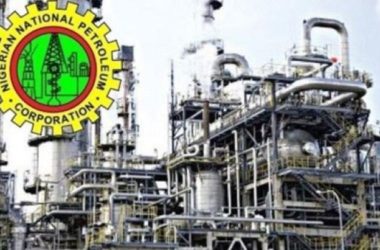As pharmaceutical industry players await the full implementation of the Executive Order recently signed by the President, a former President of the Pharmaceutical Society of Nigeria, PSN, Pharm. Olumide Akintayo, has raised alarm over the crippling impact of the National Agency for Food Administration and Control, NAFDAC, regulations on Nigeria’s drug production capacity.
Akintayo said Nigeria’s overreliance on drug imports, despite ambitious plans for local manufacturing, is largely due to stifling bureaucratic hurdles imposed by the regulatory agencies.“Nigeria’s national drug policy aspires to achieve 70 percent local production of essential drugs; however, the reality is different with the nation currently importing 70 percent of its drug needs.
Akintayo attributed this discrepancy to insufficient local manufacturing capacity and the exorbitant costs involved in setting up new production plants, among others.“In an interview with Good Health Weekly, Akintayo, who disagreed that only the executive order can bring down the prices of drugs easily, acknowledged things the government has done well, including zero duties, no VAT, and all that, but insisted that there are internal tariffs from regulatory agencies to deal with.
He said, “Even if we had all the manufacturing plants in place today, it would still take significant time to ramp up production and meet the country’s drug needs. The reality is that we still have to rely on imports for the foreseeable future.
The expert also pointed out that NAFDAC’s stringent regulations, including hefty inspection fees and bureaucratic bottlenecks, are discouraging investments in the pharmaceutical sector. “NAFDAC is charging about $8 million per laboratory. This is a huge burden on manufacturers, especially small and medium-sized enterprises.
“There are things the government has done well—zero duties, no VAT, and all that—but there are internal tariffs from regulatory agencies to deal with, and nobody is talking about those things.
“For me, that’s even the more serious one. Good manufacturing practice, inspection fees. At today’s rate, NAFDAC is charging about $8 million per laboratory. Where will those things come from? This includes anti-malarias.
“They are banning anti-malarias. What you’re going to get very soon is that we’re going to get into monopolies, and it will destroy this sector if we are not careful. You see what the reliance on dangote and cement has cost us as a nation. That’s the kind of thing you will get. We don’t have installed capacity to produce all of these things,” he lamented.
The high cost of complying with NAFDAC regulations, the expert argued, is ultimately passed on to consumers in the form of higher drug prices.
“I am telling you experientially, if you look at the situation, I mean, as a seasoned health correspondent yourself, you do know that they say 65 percent of clinical visitations are malaria-based.
“Can we in good conscience say that Nigeria has the capacity, that our pharmaceutical plants can produce the equivalent of 130 million doses of anti-malaria every day? No. What I’m saying is, whether we like it or not, you still have to make up with imports, at least for some time.
“It takes time to build these manufacturing plants. If you have all the money to drive a production plant that is one product line, you will spend almost $3 million.”
To address the challenges facing the pharmaceutical sector, the expert called for urgent government intervention.
He urged the Federal Ministry of Health and the National Assembly to take decisive action to reduce regulatory burdens and create a more conducive environment for drug manufacturers.
“We need to strike a balance between ensuring drug safety and promoting local production. The government must streamline regulations, reduce costs for manufacturers, and support the growth of the pharmaceutical industry.
“We need to deal with that matter, otherwise, we are deceiving ourselves that prices of drugs will come down. It is not just about the timeline of the Executive Order; it is still premature to say that the order will crash prices. You have to do things that will make the prices of the drugs come down. You have to abolish those tariffs that were introduced around 2022 by NAFDAC.
“NAFDAC is still planning other things. They are trying to come up with a new policy that will enable them to trace all drugs that come into the country.
“Now, the only country that has done what I am told is Turkey, we do not need all, that should not be our priority because that policy will cost the pharmaceutical industry some investments in hundreds of millions and billions of naira. “The implication is that all importers and manufacturers will need to change their product packs, that comes with a lot of money, and those costs will be transferred to consumers,” he stated “









